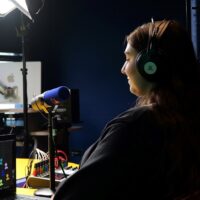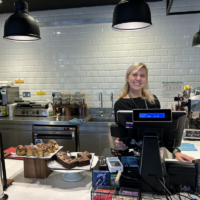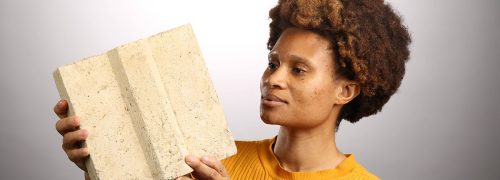
People
Meet the Dockers: Oluchukwu Okonkwo
Based at the University of East London (UEL), Oluchukwu Okonkwo (Oluchi for short) is a multi-award-winning Biomaterials Researcher for the innovative, sustainable and eco-friendly material, Sugarcrete®️. In this Meet the Dockers interview Oluchi shares the remarkable story of the construction material made from sugarcane waste others deemed worthless.
I approach life and its challenges with high energy and a positive mindset. Sugarcrete® has been the perfect project for me to embrace this ethos and explore my passion for sustainability, focusing on environmental, economic and social aspects.
Working alongside a team of experts at the University of East London (UEL) with the support of Tate & Lyle Sugars Research and Technology team we developed Sugarcrete®, a low-carbon, cheaper, non-polluting alternative to bricks and concrete blockwork. The material combines sugarcane fibres left over after sugar production, with sand-mineral binders to produce bricks that have a carbon footprint six times smaller than traditionally made clay bricks.
Have you built something with it?’, that’s the first thing people always ask. Now I can confidently say ‘yes!'
Oluchukwu Okonkwo
I did my bachelor’s, undergraduate and two master’s degrees in architecture at UEL. I loved studying at UEL, and I now work there! My role is a Biomaterials Researcher for the Sugarcrete® project working with the co-creators, Alan Chandler, Armor Gutierrez and Bamdad Ayati.
Sugarcrete® started in 2021, during the UEL’s construction week, something the university does every year with master’s architecture students. Construction week is an intense 4-week period at the beginning of the academic year which aims to focus on a particular topic, create a quick solution and further develop it during the year. The idea was to utilise sugarcane waste to create a new construction biomaterial using mineral based binders. Sugarcane is the most cultivated crop in the world. The material was chosen for the project as every year, two billion tonnes are produced globally and out of that 1/3 is waste.
I realised the product had potential and incorporated the material in my final thesis, which was nominated for the RIBA Skin Thinking Award and Architects Journal Sustainability Award. After graduating in 2023, I knew I’d love to work on any project that involves Sugarcrete®. Soon after I was made Researcher Assistant for the project. I always felt that the product had untapped potential and should be studied more in-depth. It was in January 2024 I decided to start my PhD in Sugarcrete®. I wanted to make and test Sugarcrete®, optimise the product and get it ready to hit the market.
In the UK we don’t grow sugarcane, so our work is mainly aimed at countries that grow the crop. We exchange knowledge and help them better manage their sugarcane waste so they can produce the material. Last year our students designed a school extension for our Indian partners, and now the building is complete and already in use. It’s one of our biggest achievements so far to have our first Sugarcrete® prototype building in India. The material is also being used locally, most recently to build seating, planters and birdhouses for a new community garden in North Woolwich, London. ‘Have you built something with it?’, that’s the first thing people always ask. Now I can confidently say ‘yes!’ and show them the pictures! We are currently in talks about future collaborations with stakeholders from more than 15 countries, which is very exciting.
Sugarcrete® isn’t patented. We want to get as many people as possible to use it so having an open-source strategy makes perfect sense. This way we can help the Global South effectively manage their waste problem while helping solve environmental and health issues. It also creates employment and export opportunities in these countries. Our open-source strategy has enabled many current collaborations and will allow for even more partnerships in the future. We are always open to ideas and partnerships and offer knowledge exchange with universities within and outside the UK. We are keen to help set up more Sugarcrete® manufacturing centres in sugarcane producing countries who wish to make true positive impact in agricultural waste management. Through the work, I want to empower communities around the world. This is what gives me the strength to keep going; that feeling of knowing that my research is making a positive impact on so many people.
My Double Gold Responsible Innovation Award is a testament of how transformational the Sugarcrete® project is and will continue to be. It was a great honour receiving this award given by Global Women Innovators and Inventors Network. My colleagues nominated me. I feel lucky to have such a supportive network.
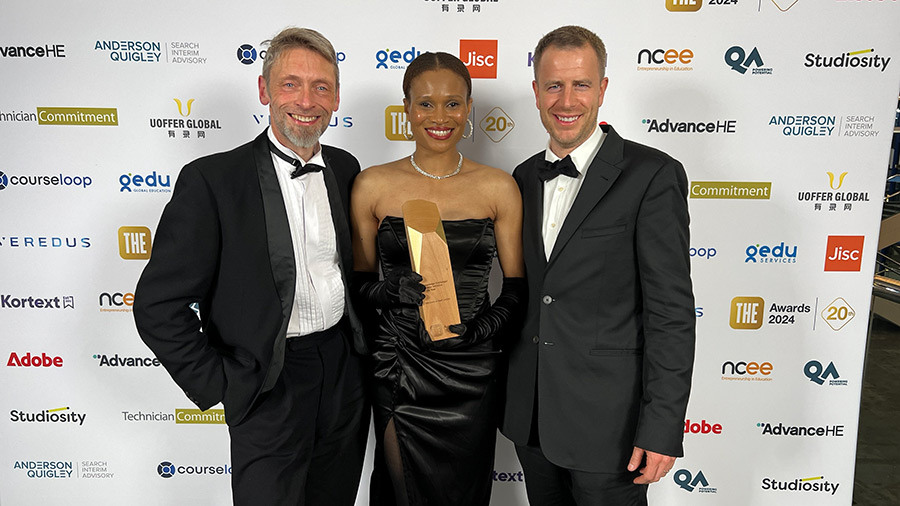
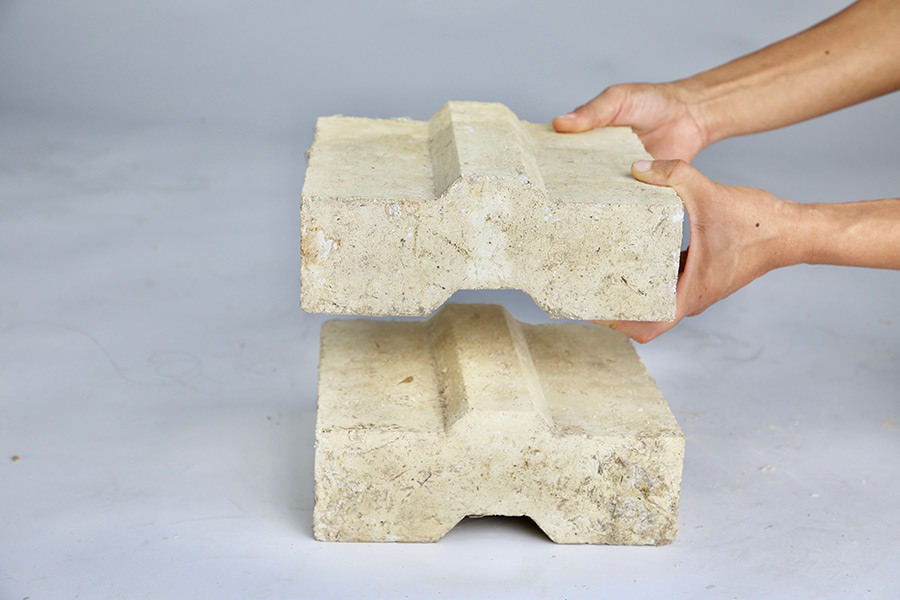
The University was also recently recognised for the project, winning the Honourable Mention Award at the Design Intelligence Award 2024 and the Knowledge Exchange/Transfer Initiative of the Year at the Times Higher Education Awards. I’m so proud of the team and the entire university for these incredible achievements. I feel particularly emotional about the Knowledge Exchange/Transfer Initiative of the Year award as I presented the project to John Gill, editor at Times Higher Education, during his visit to our university in May earlier this year. This recognition is another reassuring affirmation of our efforts and will motivate us to continue our work.
There are big opportunities here in the Royal Docks. I’ve always felt part of the vibrant and diverse community and I see the area becoming the sustainability capital of London.
Having dedicated spaces in the area and policies that benefit startups, particularly climate related ones, will help attract even more talent from the country and around the world, placing the UK at the very top of the sustainability race. The Royal Docks Centre for Sustainability, where our project is based, is playing a key role in this. The centre is helping to move forward with growth plans for a more prosperous and sustainable city. It’s great to be part of this exciting journey.
Find out more about Sugarcrete®
Visit www.uel.ac.uk/Sugarcrete® for more information the Sugarcrete®.
Find out more about UEL
For more information about UEL visit www.uel.ac.uk
Find out more about The Royal Docks Centre for Sustainability
The Royal Docks Centre for Sustainability is located at UEL. It supports the development of clean and green technology and promotes community wealth-building and inclusive innovation. The centre provides affordable workspace, specialist facilities, and research expertise to residents, businesses, UEL students and graduates. Programmes on offer on offer designed to help launch and expand businesses while enhancing the skills of local people. To find out more visit www.uel.ac.uk/partners/royal-docks-centre-sustainability
Discover more Meet the Dockers interviews
Meet the Dockers is an exclusive interview series featuring stories from people who live here, work here and are transforming the Royal Docks through activism, creativity or business. Explore the interview series at www.royaldocks.london/meet-the-dockers
If you have Royal Docks connections and would like to share your story email royaldocks@london.gov.uk

